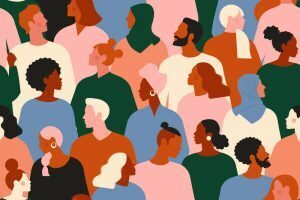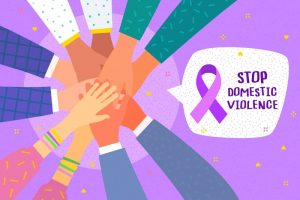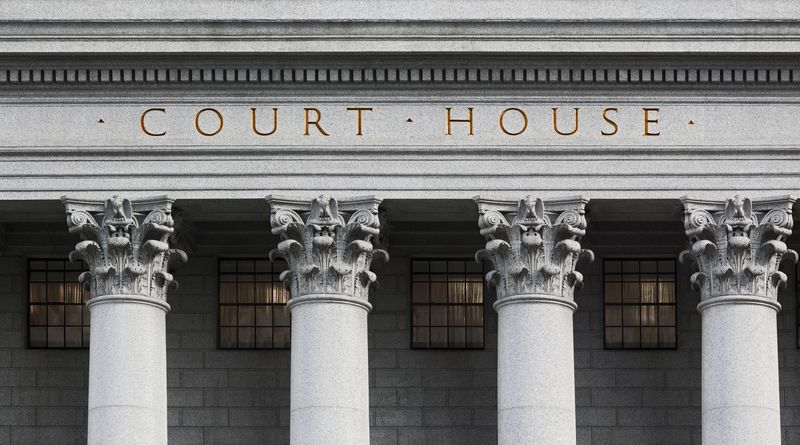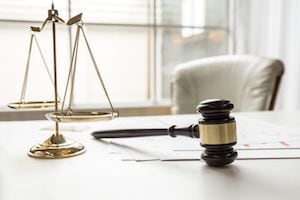
Domestic Violence and the LGBT+ Community
According to the National Coalition Against Domestic Violence, LGBT+ persons are more likely to experience rape, physical violence, or stalking than heterosexual persons.
43.8% of lesbians and 61.1% of bisexual women have experienced rape, physical violence, or stalking by an intimate partner at some point in their lifetime, as opposed to 35% of heterosexual women.
26% of gay men and 37.3% of bisexual men have experienced rape, physical violence, or stalking by an intimate partner in their lifetime, compared to 29% of heterosexual men.
Despite that, the lack of apparent filings appears to indicate LGBT+ persons are less likely to seek protection or assistance, even when those protections and services are available to them.
Some victims of domestic violence fear something more than their abuser. They dread public scorn, ridicule, and bias – Bill Powers, Charlotte Domestic Violence Lawyer
Fear of Bias
In addition to the stress and anxieties of experiencing domestic violence, the pressure of being outed or having one’s sexual orientation or gender identity revealed can cause survivors not to seek assistance for fear of being labeled as a member of the LGBT+ community.
According to a 2013 study of male same-sex couples from the National Coalition of Anti-Violence Programs, only 26% of men called the police for assistance after experiencing near-lethal violence.
Additionally, in 2012, less than 5% of LGBT+ domestic violence survivors sought protective orders.
In North Carolina, same-sex couples have some protections when a relationship turns abusive or violent.
The NC Domestic Violence laws authorize a victim to seek a domestic violence protective order (DVPO), which protects domestic violence survivors from unwanted contact and many other protections such as removing the abuser from a shared home, prohibitions against possessing firearms, and temporary custody of minor children.
Specific categories of people can apply for a DVPO in North Carolina under Chapter 50B-1(b) of the North Carolina General Statutes:
- Current or former spouses
- Persons of the opposite sex who live together or have lived together
- Persons related to one another as parents and children
- Persons who have a child in common
- Current or former household members
- Persons of the opposite sex who are in a dating relationship or have been in a dating relationship. For purposes of this statute, a dating relationship is one wherein the parties are romantically involved over time and on a continuous basis during the course of the relationship.
Unfortunately, LGBT+ persons who are or were in a dating relationship are not specifically enumerated within Chapter 50B. Under a strict reading of the statute, individuals may not be able to apply for a DVPO.
However, change may be on the horizon.
A 2019 case involving a same-sex couple in Wake County has been appealed to the North Carolina Court of Appeals that may remove these exclusions for dating same-sex couples, giving all people Equal Protection under the law, as well as Due Process rights.
Domestic Violence Protective Orders
There are internal inconsistencies in the statute, causing potential problems for LGBT+ couples who are not legally wed.
LGBT+ persons who are or were married may apply for a DVPO since the law does not require spouses to be of the opposite sex.
What should I do if I’m a victim of Domestic Violence?
Until the case is resolved, LGBT persons who are survivors of domestic violence should seek medical attention for any injuries inflicted during the abuse and catalog those injuries.
Any other proof of abuse or violence, physical or otherwise, should likewise be kept.
What happens if a Restraining Order is Violated?
While DVPO’s may not be available to all LGBT persons in abusive or violent relationships, other avenues exist to end contact with the other person, such as having criminal charges brought against the other person.
North Carolina also provides for other forms of Restraining Orders and other “Civil No-Contact Orders,” such as the protections set forth within N.C.G.S. 50C.
If the survivor of domestic violence should seek a DVPO or other legal action against an abuser, they should likewise seek an experienced attorney to assist them in that process.
Charlotte Domestic Violence Lawyers
At Powers Law Firm PA we have years of experience handling North Carolina domestic violence cases and matters concerning DVPOs.
Same-Sex Marriage in North Carolina
We believe in assisting all persons with their legal issues, no matter their sexual orientation or gender identity.
Domestic violence is a difficult and serious matter, often taking a physical and emotional toll.
We encourage victims of Domestic Violence to stand up to their abuser, consider hiring a knowledgeable domestic violence attorney in Charlotte who can help you get a DVPO or consider other options to keep you safe.
With the growing acceptance and prevalence of same-sex couples, it is becoming clear that domestic violence protections will in all likelihood be extended to LGBT +individuals to the same nature and extent as heterosexual counterparts.
Learn More
Is Domestic Violence a Federal Offense?
 We’ve all heard the saying, “Don’t make a federal case out of it.” It’s meant to imply a substantial overreaction or hyperbolic assessment of a problem. In the south, we might say, “Don’t make such a fuss.” But is it really fair regarding “DV” charges in Charlotte? Is domestic violence a federal offense?
We’ve all heard the saying, “Don’t make a federal case out of it.” It’s meant to imply a substantial overreaction or hyperbolic assessment of a problem. In the south, we might say, “Don’t make such a fuss.” But is it really fair regarding “DV” charges in Charlotte? Is domestic violence a federal offense?
Should it be?
Federal Court and federal criminal charges are serious stuff. People can serve long, long prison sentences if indicted and found guilty of violations of serious federal, criminal laws.
Given the possible consequences of DV, is it appropriate to “federalize” what has for decades been handled in state court?
Criminal charges like an assault on a female, communicating threats, injury to personal property, and felony assault by strangulation are traditionally considered to be violations of the NC criminal laws.
Should that be it?
Is it an overreaction to criminally prosecute someone in both state and federal court? Does that violate the Constitution or the precept of Double Jeopardy?
Is there a difference/more serious when the relationship involves a husband, wife, boyfriend, girlfriend, or other domestic relationship?
If so, when should it be a federal offense?
Domestic Violence in Charlotte already is somewhat complicated, given the possibility of a both criminal charges and a related DVPO (restraining order) based the same allegations. That’s true whether you’re a victim or the alleged offender. It helps to receive sound legal advice irrespective of where you stand in the courtroom – Bill Powers, Charlotte Lawyer
Recent media accounts suggest Domestic Violence in Charlotte may result in the feds taking a look. While most criminal charges in Charlotte will remain within the state court system, that’s true for state felony or misdemeanor charges, there are instances where the United Government might involve itself, seeking an indictment.
At least in Charlotte, the United States Attorney for the Western District of North Carolina, Andrew Murray, seems interested in pursuing federal criminal charges in certain circumstances.
Those seem likely to be related to weapons offenses, cyberstalking, and instances of gross misconduct.
One would be remiss in failing to note that US Attorney Murray is the former elected District Attorney for the 26th Judicial District state court system (prosecutor for crimes in Charlotte-Mecklenburg) and as such, has intimate knowledge of both the strengths and weaknesses of the state court criminal justice system.
Domestic Violence Charges in North Carolina
The term “domestic violence” does not specifically refer to a certain type of charge as much as it is intended to cover some very common criminal charges that also involve a special relationship between the alleged victim and the accused.
Criminal defense lawyers sometimes view DV charges a bit differently from divorce lawyers. They tend to focus on the elements of offenses like assault, assault and battery, etc. The distinguishing factor is criminal charge involves a ‘domestic relationship’ – Bill Powers
There are special rules about bond/bail involving DV charges in North Carolina.
The DA’s Office in Charlotte has a special team of experienced prosecutors who focus on DV charges.
Related Legal Issues Involving Domestic Violence / Federal Offense
- Domestic Violence
- Domestic Violence Protective Orders in North Carolina
- Restraining Order
- Complaint for Domestic Violence Protective Orders – Filing and Pleadings
- DVPO Violation
Charlotte Divorce Lawyers – Domestic Violence – Bill Powers
Our law firm helps people on both sides of the courtroom. That means we represent both victims of domestic violence and those who may have been accused of acts of domestic violence.
Obviously, we don’t do that at the same time.
Legal representation is limited to one party in a dispute.
That’s one reason we conduct a conflict check before going into great detail into a case.
Our law firm is dedicated to helping people understand what has become, we believe, an extraordinarily complicated area of law. Understanding both sides to a dispute, and the procedural aspects of representation irrespective of the litigant, is an important aspect of any case – Bill Powers, Divorce Lawyer in Charlotte
We think it’s a good idea to take a holistic approach to analyze a case. Allegations of DV are as wide and varied as the parties and their individual relationships.
Learn More
What You Need to Know About Domestic Violence Protective Orders
 In North Carolina, a domestic violence protective order (DPVO) is a civil relief that is filed in district court. It permits the court to order an alleged abuser to do or refrain from doing certain acts as it relates to the plaintiff. Obtaining a DPVO requires the plaintiff to show that domestic abuse is being committed. In addition, the plaintiff must show a present or past personal relationship between themselves and the alleged abuser (among other requirements). The process for obtaining a DVPO has been streamlined for average citizens to take advantage of it to protect themselves.
In North Carolina, a domestic violence protective order (DPVO) is a civil relief that is filed in district court. It permits the court to order an alleged abuser to do or refrain from doing certain acts as it relates to the plaintiff. Obtaining a DPVO requires the plaintiff to show that domestic abuse is being committed. In addition, the plaintiff must show a present or past personal relationship between themselves and the alleged abuser (among other requirements). The process for obtaining a DVPO has been streamlined for average citizens to take advantage of it to protect themselves.
How to Obtain a DVPO
A plaintiff must go to their district court to file DVPO forms. If the plaintiff requires filing outside of business hours, they may go to a magistrate. If the plaintiff requires an emergency filing, then the DVPO may advance as an ex parte filing. The ex parte filing will apply for a temporary order, and will not require the presence of the alleged abuser when the temporary order is issued. The DVPO also provides for temporary custody by the plaintiff if there are children involved. In addition, the alleged abuser must surrender all firearms. There are no fees associated with filing a DVPO in North Carolina. After filing for the DVPO, the plaintiff must take the forms to the sheriff’s department. In turn, the sheriff’s department will serve the defendant with the complaint and a summons to appear in court. Thereafter, a hearing is scheduled on the merits of the case where the plaintiff must show evidence that the alleged abusive acts were actually committed.
DVPO Requirements
To obtain a DVPO, the plaintiff must show domestic violence from an individual with whom the plaintiff has a personal relationship. In North Carolina, domestic violence is defined as attempts to cause bodily injury; intentionally causing injury; imminent fear of serious bodily injury; continued harassment that causes emotional distress, etc. These actions include those that are inflicted on a minor. In addition, teenagers who are under the age of 18 may have their parents or guardian file the DVPO on their behalf. The personal relationship requirement is widely construed to include spousal, familial, roommate and dating relationships.
The Effect of a Standing DPVO
The effect of a standing DVPO is wide-reaching. A judge can order the defendant to do certain acts and/or refrain from doing certain acts, including:
- Order the defendant to refrain from assaults, threats and harassment
- Require that law enforcement remove the defendant from a shared home
- Order the defendant to stay away from the plaintiff’s home, school or place of work
- Order the defendant to make support payments
- Order the defendant to forfeit any firearms or other weapons
- Any such order as the judge may see fit for the situation
North Carolina Domestic Violence Lawyers
Domestic violence is a serious matter. To be sure, these matters are some of the most volatile legal issues in the realm of family law. The attorneys at Powers Landreth PLLC have years of experience dealing with North Carolina domestic violence laws and DVPO issues. We know that keeping you and your family protected is top priority. As such, it is imperative to seek the assistance of an experienced DVPO attorney.
Resources:
nccourts.org/forms/Documents/696.pdf
ncleg.net/enactedlegislation/statutes/html/bychapter/chapter_50b.html
Learn More